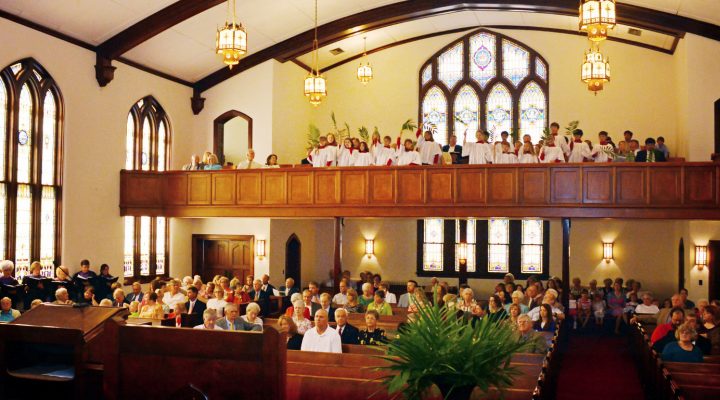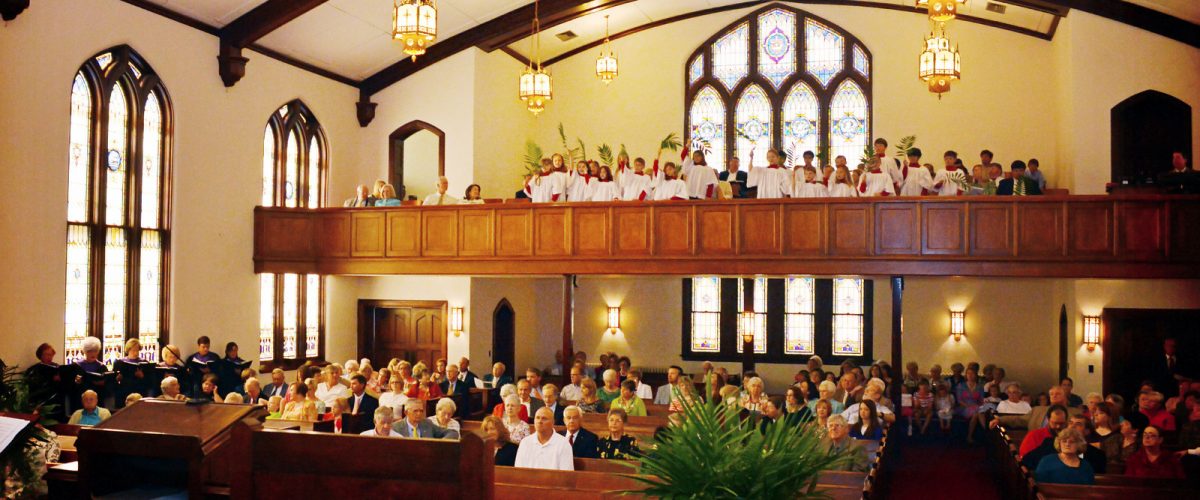In 2011, I was invited to join the Chowan University community as assistant professor of religion. Naturally, I was thrilled to have a job amidst a stifling job market. Furthermore, I realized how fortunate this job offer was as the defense of my Ph.D. dissertation in early Christianity still had three months’ wait.
Perhaps surprising to some, my anxiety over this needle-in-a-haystack opportunity equaled my excitement. The question that perplexed me: How, exactly, do I teach religion in an institution of higher education such as Chowan University — a historically Baptist/Christian university.
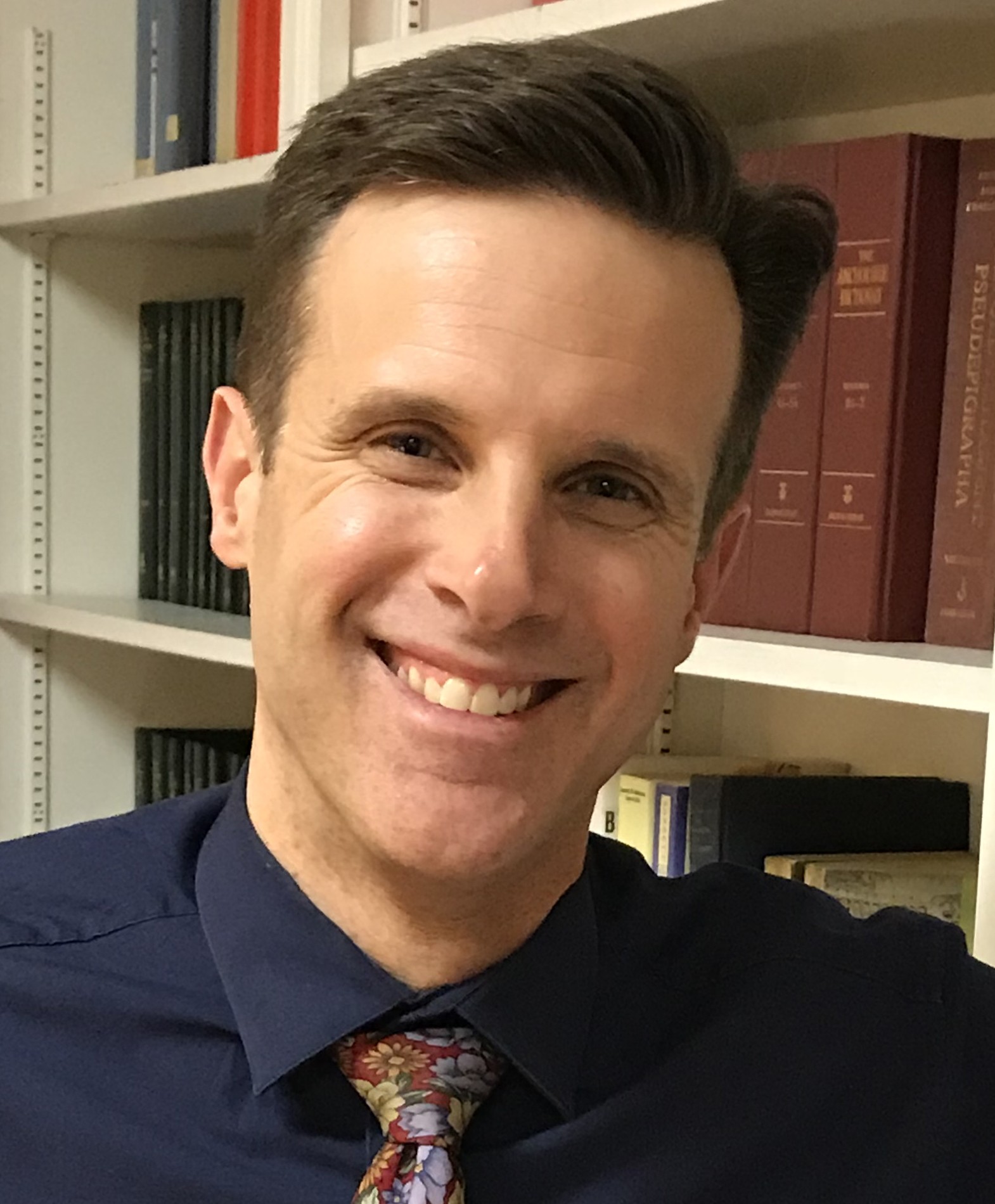
Paul R. Gilliam III
Allow me to unpack this quagmire.
My formal educational journey is diverse, perhaps more diverse than many who go on to serve as pastors of local congregations. I have an undergraduate degree in communication studies as well as a master of divinity from Gardner-Webb University — another historically Baptist/Christian university.
Thus, when I arrived at Chowan, I was fluent in the language of small historically Baptist/Christian universities. However, I also have a master of arts in religious studies from the University of North Carolina at Charlotte — a public and secular university. Finally, I completed Ph.D. work at the University of Edinburgh in Scotland — a university with a quite different accent from the American university in more ways than one.
The Divinity School at the University of Edinburgh does offer preparatory curriculum for women and men preparing for ministry in the Church of Scotland. However, when I was there, the lion’s share of students worked toward research degrees. And most undergraduate students had no plans for a career in ministry.
While I am most proud of the Ph.D. from the University of Edinburgh, my time as a graduate student at the University of North Carolina at Charlotte was most impactful. I had classes there with Christians like me, Muslims, religious Jews, secular Jews and agnostics. One of my closest friends in the graduate program was an atheist.
“Christian ministers, as well as other types of Christians, need to discuss Christianity with people who are not Christians.”
What a marvelous opportunity for a young Christian minister — one that could not be afforded by my master of divinity environment, as grateful as I am for the nurture I received both as an undergraduate and graduate student at Gardner-Webb. Christian ministers, as well as other types of Christians, need to discuss Christianity with people who are not Christians. In fact, one year for Hanukkah, a female graduate student who also was a Jewish rabbi gave me a New Testament translated into modern Hebrew. I never before, and I never since, received a gift for Hanukkah.
By the time I reached Chowan University as an assistant professor of religion, I spoke a different language than some professors who teach in small Baptist/Christian universities. Forgive me if the previous sentence contains an air of arrogance, as it never was an intentional goal to gather such eclectic educational experiences. It is just what happened. In fact, if not for all the fuss amongst Southern Baptists in the 1980s, I likely would have studied at only Baptist universities as I began at Gardner-Webb. Nonetheless, in light of my educational experiences, how do I teach religion at Chowan University?
If I had landed in a strictly theological setting such as a Christian divinity school or if I had begun my teaching career in a strictly secular setting such as a state university, the answer for how to teach religion would have been cut and dry. In a theological setting, I would have no problem beginning classes with prayer and freely sharing about my own Christian faith as well as my experiences as a church leader.
I have a colleague who teaches the history of Christianity at a state university. He tells me he knows he has done his job well when students ask, “Are you a Christian or not, I can’t tell?” If I were in a strictly secular setting, my colleague would be my role model. By the way, he is a Christian.
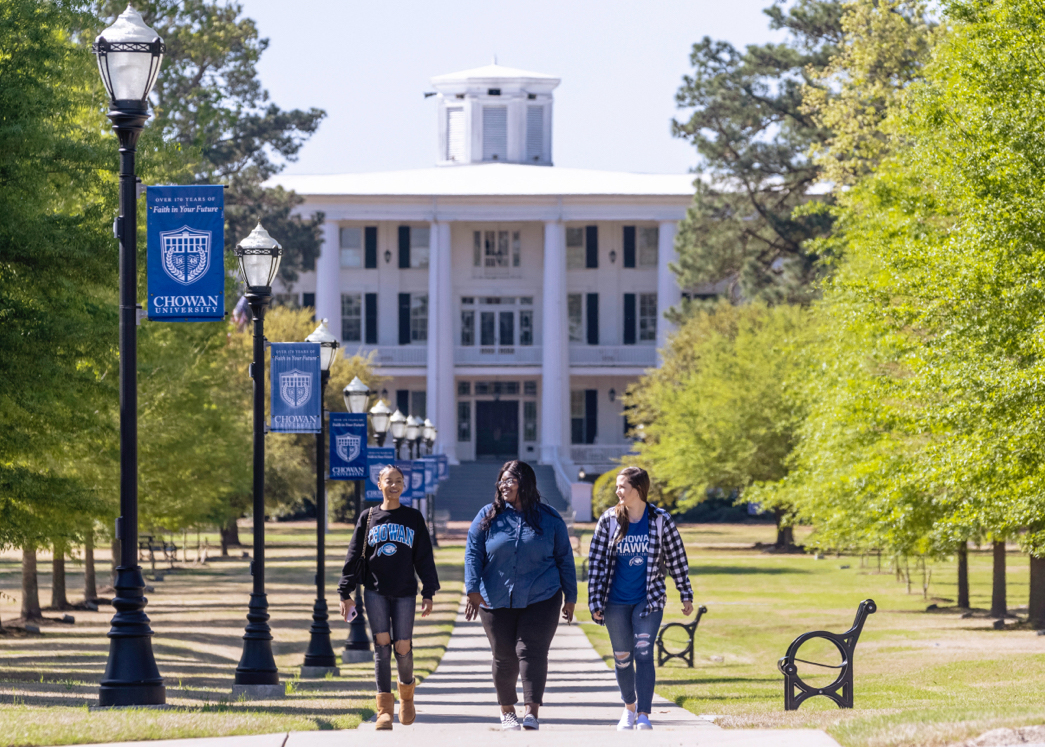
Chowan University
A place such as Chowan is unique. On one hand, the university has a close relationship with local churches. In fact, First Baptist Ahoskie, the church I serve as pastor, has been a major supporter of Chowan since Chowan’s birth before the American Civil War in 1848.
On the other hand, Chowan is not a church. It is a liberal arts university. Everyone who participates in the Chowan community — students, faculty and staff — is not a professing Christian nor is everyone active in a local church. Indeed, upon deeper reflection it becomes clear that Chowan, along with so many similar institutions of higher education, functions as a university and not as a church. And this is how it should be.
Thus, acknowledging the complex nature of schools that seek to uphold a Christian identity but whose community is made of a variety of religious perspectives and a variety of levels of religious commitment, I decided to instruct my classes in a manner more similar to my colleague at the state university than the manner in which I instructed students during the summer session in 2006 when I taught Greek in the Gardner-Webb University School of Divinity.
In other words, while I do not hide my Christian identity or professional vocation from students, neither is it on explicit display in the classroom. I pursue objectivity in the classroom. Of course, the nature of after-class discussions can be more confessional. In the classroom, however, the atmosphere is descriptive, not confessional. I find our nonreligious students as well as our religious students appreciate this approach. They tell me so. No one gets mad. Due to the composition of Chowan’s student body, this approach simply makes sense.
With the foundation of the preceding paragraphs laid, I offer more reflection on the appropriate relationship of the church and the university.
The church and the university hold two fundamentally different roles in society.
The university is about following the evidence (understood generically here from any discipline) wherever the evidence leads. And the church is about preserving an ancient message — Jesus the Christ crucified and raised from the dead for the forgiveness of human sin. Sometimes the evidence leads to conclusions that do not threaten the ancient message of the church (the latest discovery about Shakespeare) and other times the evidence leads to conclusions that are at odds with the ancient message of the church (miracles, such as resurrection from the dead, cannot be accounted for in historical reconstruction). Thus, there will always be a creative tension between the church and the university. The church and the university can be friends — very good friends even. However, they are in fact two fundamentally different institutions.
“There will always be a creative tension between the church and the university.”
Thus, I propose that historically church-affiliated colleges and universities should make Christian faith only a part of their narrative. As a university or college is not a church, a university or college should not center its narrative on Christian faith. The only institutions that should center their narrative on Christian faith are the church of Jesus the Christ and theological institutions that exist explicitly to prepare clergy for the church.
Stepping outside Baptist circles for a moment, Randolph-Macon College, in Ashland, Va., incarnates my understanding of a proper relationship between the church and the university. Randolph-Macon messages its historic Methodist identity appropriately as it does not center the college’s narrative on its Methodist identity.
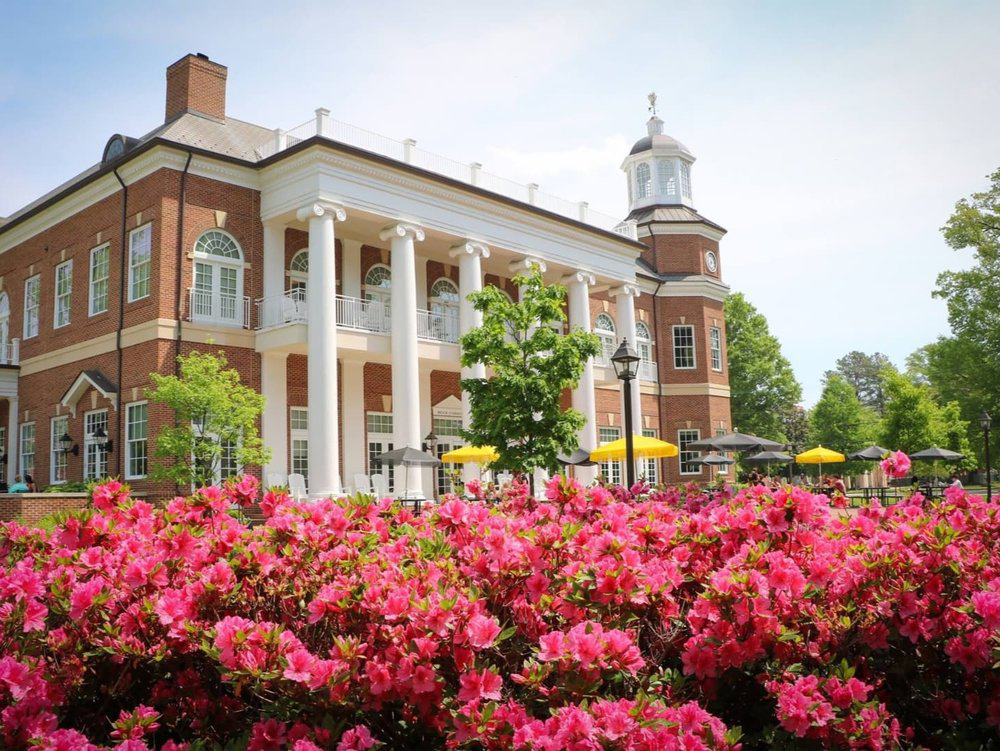
Randolph-Macon College
When you arrive at Randolph-Macon’s website, you will find nothing on the elaborate homepage about Christian faith. You must dig a bit before you find the Christian part of Randolph-Macon’s narrative. There is no mention of Randolph-Macon’s Methodist/Christian identity on their “Quick Facts” page.
The opening sentence of the “History of Randolph-Macon College” reads, “Founded in 1830 by the Methodist Church, the College is the oldest college like it in continuous operation in the United States.”
We are then informed that neither John Randolph of Virginia nor Nathaniel Macon of North Carolina were Methodists. The college was named after these two men, “to send a message that students of all denominations were welcome.” Appropriately for a college or university, “This tradition of openness flourishes today in the religious and ethnic diversity of our student body.”
After these opening sentences, there is no more mention of Randolph-Macon’s religious history. Other college characteristics take center stage.
As you dig deeper still into Randolph-Macon’s website, and if you are looking for it, you will find the “Office of the Chaplain” webpage. On this page, there is a link to the A. Purnell Bailey Program for Ordained Ministry. Its description states, “This exceptional program provides financial aid, weekly meetings, internship opportunities and more for students discerning a call to Christian ministry.”
The program is truly exceptional. Among other benefits, students accepted into the program earn half-tuition scholarships for their freshman and sophomore years and full-tuition scholarships for their junior and senior years. Furthermore, students in the Bailey Program are required to complete two pre-ministerial internships. One of the two is supported by a $3,000 stipend.
In a promotional video, Kendra Grimes, the college chaplain, says the Bailey program is a superb manner to honor Randolph-Macon’s Methodist founding. I agree. The college’s Methodist history is an important part of its story, even today. However, the leadership at Randolph-Macon clearly knows its identity as a college and not as a church.
Indeed, as an allegiance to Christian faith is not required for admission into the Randolph-Macon community as it is required for admission into the church, the Randolph-Macon community is religiously diverse. In addition to Christian organizations, there is also a Jewish organization on campus, Hillel.
Furthermore, there is a mindfulness meditation group that “is open to all R-MC community members, whether you identify with a particular religious tradition or not.” Finally, “interfaith events are woven throughout each semester and offer a welcoming space for all students to come together.” Randolph-Macon’s Muslim community is represented on the Interfaith Council.
Randolph-Macon College is one example of an institution of higher learning that clearly knows its identity as a friend of the Christian church but maintains a clear demarcation between the church and university. I do not know. However, I suspect there is less anxiety over the fundamental question of “who are we?” on this campus than there is on other such historically church-affiliated campuses.
Paul R. Gilliam III serves as Pastor of First Baptist Church of Ahoskie, N.C., as well as director of the religion program at Chowan University. He is also the author of two books: Ignatius of Antioch and the Arian Controversy and the forthcoming William Whiston and the Apostolic Constitutions: Completing the Reformation.

